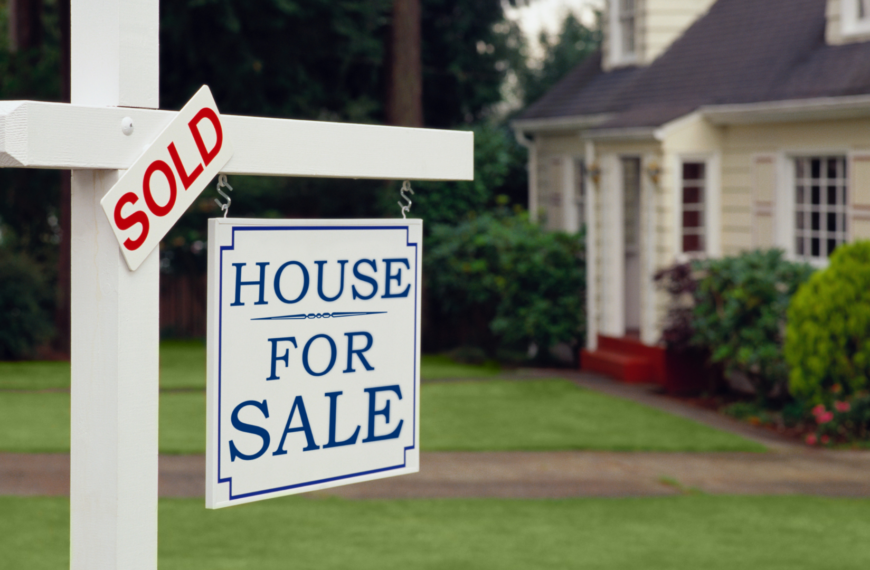If you’ve ever seen those sketchy, handwritten “We Buy Houses for Cash!” signs stapled to telephone poles, you’ve probably wondered: Who falls for this stuff? The answer? More people than you’d think. And not just desperate sellers—everyday homeowners looking for a quick sale get caught in these traps, too.
The cash home buying industry is filled with both legitimate investors and outright predators looking to pull a fast one. So how do you know who’s the real deal and who’s a fraud? Simple. You learn to spot the scams.
Why People Sell Their Homes for Cash
First, let’s talk about why homeowners sell for cash in the first place. It’s not always about desperation. Many sellers just want to skip the headaches that come with traditional home sales—no repairs, no waiting months for buyers, and no dealing with flaky banks. Common reasons include:
- Foreclosure avoidance – The bank’s breathing down your neck, and you need out—fast.
- Divorce or inheritance – You need a clean break, and you need it now.
- Job relocation – You got a new gig across the country and don’t have time for a drawn-out sale.
- Too many repairs – Your house is falling apart, and you’d rather torch it than fix it.
Legitimate cash buyers can solve these problems. Scammers, on the other hand, will turn them into nightmares.
Common “We Buy Houses” Scams
The cash home buying industry is the Wild West, and for every ethical buyer, there are a dozen swindlers. Here’s how they operate:
1. The Fake Buyer Scam
This is the classic bait-and-switch. A scammer claims to be a serious real estate investor, promises a fast closing, and then… nothing. No funds, no follow-through. They tie up your property in a fake contract, trying to flip it to another buyer without actually having the cash themselves.
🚩 Red Flags:
- No proof of funds.
- Lots of talk, zero action.
- Delays, excuses, and “investor partners” suddenly appearing.
2. The Wire Fraud Scam
This is some next-level grift. A fraudster tricks you into sending them money—a “deposit,” “processing fee,” or even closing costs. They might use fake legal documents, posing as a title company or even a buyer.
🚩 Red Flags:
- Requests for upfront fees before closing.
- Emails from sketchy, misspelled domain names.
- Fake “escrow” services that no one’s heard of.
3. The Lowball Offer Trap
Some so-called “cash buyers” will offer a fair price at first, then slash the offer just before closing, counting on your desperation to force you into accepting.
🚩 Red Flags:
- Sudden price reductions without explanation.
- High-pressure tactics (“Take it or leave it—right now!”).
- Contracts with non-refundable deposits—meaning they keep your money even if they back out.
4. The “Too Good to Be True” Offer
A scammer dangles an insanely high offer in front of you—way more than your house is worth—only to later introduce hidden fees, change terms, or disappear altogether.
🚩 Red Flags:
- Unrealistically high offers without an inspection.
- No references or proof of past transactions.
- No verifiable business presence (website, reviews, legal entity, etc.).
5. The Contract Manipulation Scam
These crooks bury nasty clauses in the fine print—stuff that locks you into a garbage deal, transfers your deed prematurely, or gives them the right to sell your house without paying you first.
🚩 Red Flags:
- Overly complex contracts with vague legalese.
- Refusal to let you review the contract with a real estate attorney.
- Requests for you to sign over the deed before payment.
How to Spot a Legitimate Cash Home Buyer
Scams thrive on ignorance, but knowledge is your armor. Here’s how to separate the pros from the frauds:
1. Verify Business Credentials
A real cash home buyer has a real business. Check their:
- Website – Does it look professional? Do they list a real business address?
- Online reviews – Look them up on Google, Better Business Bureau (BBB), and Trustpilot.
- License & Registration – Are they registered with the state real estate commission or Secretary of State?
2. Ask for Proof of Funds
A serious cash buyer has, well, cash. Ask for bank statements or proof of capital.
❌ What NOT to accept:
- “Pre-approval” letters (these are for mortgages, not cash sales).
- Vague promises of funding from “partners.”
3. Demand a Transparent Process
A legit real estate investor will outline the process step-by-step, no surprises.
✅ A good buyer will:
- Explain exactly how long the sale takes.
- Provide a clear, fair contract.
- Stick to their initial offer (unless issues arise during an inspection).
4. Use a Title Company or Real Estate Attorney
NEVER sign over your deed without payment in hand. A legitimate sale should go through a trusted title company or escrow service.
5. Avoid Buyers Who Demand Upfront Fees
No serious home buyer will ask you to pay anything before closing. Period.
6. Check for References & Past Transactions
A real cash home buying company should have testimonials and real people vouching for them.
What to Do If You Suspect a Scam
Caught in a scam—or smell one coming? Take action:
- Report it to the BBB – File a complaint with the Better Business Bureau.
- Alert the FTC – The Federal Trade Commission investigates fraudulent businesses.
- Spread the word – Post on forums, Facebook groups, and Google reviews.
- Consult a real estate attorney – If you’ve signed something shady, get legal help fast.
Conclusion
Selling your house for cash doesn’t have to be a nightmare—but you need to be smart. The industry is full of great, ethical investors, but also con artists looking to rip you off.
Bottom line? Trust, but verify. Research buyers, demand transparency, and never sign anything you don’t understand.
Because in this game, knowledge isn’t just power—it’s protection.
FAQ
1. Are all “We Buy Houses” companies scams?
No. Many legitimate investors buy homes for cash every day. But there are plenty of scams out there, so do your research.
2. How can I verify if a cash buyer is legitimate?
Check for business licenses, reviews, proof of funds, and references. Always close through a title company.
3. Should I ever pay upfront fees to a cash home buyer?
Absolutely not. No real cash buyer will ask for money upfront.
4. How do I report a fraudulent home buyer?
Report them to the BBB, FTC, state real estate commission, and online review sites.
5. Can a scammer steal my home?
Yes, if you sign over your deed without proper safeguards. Always close with a trusted title company or attorney. That’s how you stay one step ahead of the scammers. Stay sharp. Stay informed. And most importantly—don’t get played.
References
-
Federal Trade Commission. (2022). Mortgage relief scams. Retrieved from https://consumer.ftc.gov/articles/mortgage-relief-scams
-
Federal Trade Commission. (2022). Closing the door on home buying company Opendoor’s false claims. Retrieved from https://consumer.ftc.gov/consumer-alerts/2022/08/closing-door-home-buying-company-opendoors-false-claims
-
U.S. Department of Housing and Urban Development. (n.d.). Buying a home. Retrieved from https://www.hud.gov/topics/buying_a_home
-
Federal Trade Commission. (2016). What you need to know about rent-to-own home deals. Retrieved from https://consumer.ftc.gov/consumer-alerts/2016/11/what-you-need-know-about-rent-own-home-deals
-
U.S. Department of Housing and Urban Development. (n.d.). Common questions from first-time homebuyers. Retrieved from https://www.hud.gov/topics/common_questions




















